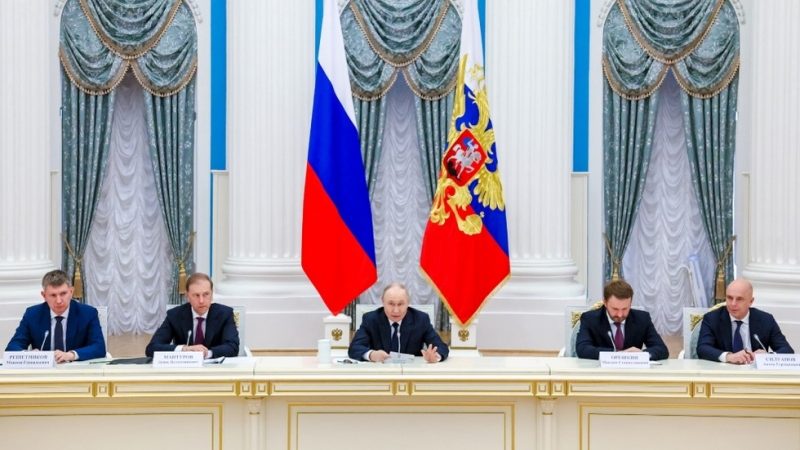
In a recent Kremlin meeting with Russia’s top business leaders, President Vladimir Putin delivered a strong message about the country’s economic resilience in the face of Western sanctions. He declared that, far from crippling Russia, these sanctions have paradoxically strengthened the nation’s resolve and spurred internal innovation. This defiant stance was a key takeaway from the gathering, setting the tone for a discussion that touched on a wide range of economic issues.
Putin’s comments regarding McDonald’s were particularly noteworthy. He dismissed any notion of a welcoming return for the fast-food giant, signaling a continued commitment to supporting domestic businesses and prioritizing self-sufficiency. This reflects a broader strategy of import substitution, aiming to reduce reliance on foreign goods and services.
Beyond geopolitical posturing, the meeting also delved into crucial internal matters. A significant focus was placed on improving Russia’s technological infrastructure and addressing what Putin termed ‘bad IT habits.’ This suggests a concerted effort to modernize the country’s digital landscape, potentially aiming for greater technological independence and efficiency. The specifics of this initiative remain unclear, but it indicates a recognition of the critical role technology plays in modern economic competitiveness.
The overall message from the meeting was one of strength and self-reliance. Putin emphasized Russia’s ability to adapt and thrive even amidst significant external pressure. While the long-term economic consequences of the sanctions and the success of the proposed technological overhaul remain to be seen, the meeting served as a powerful statement of the Kremlin’s economic priorities and its determination to navigate the current geopolitical landscape on its own terms.










